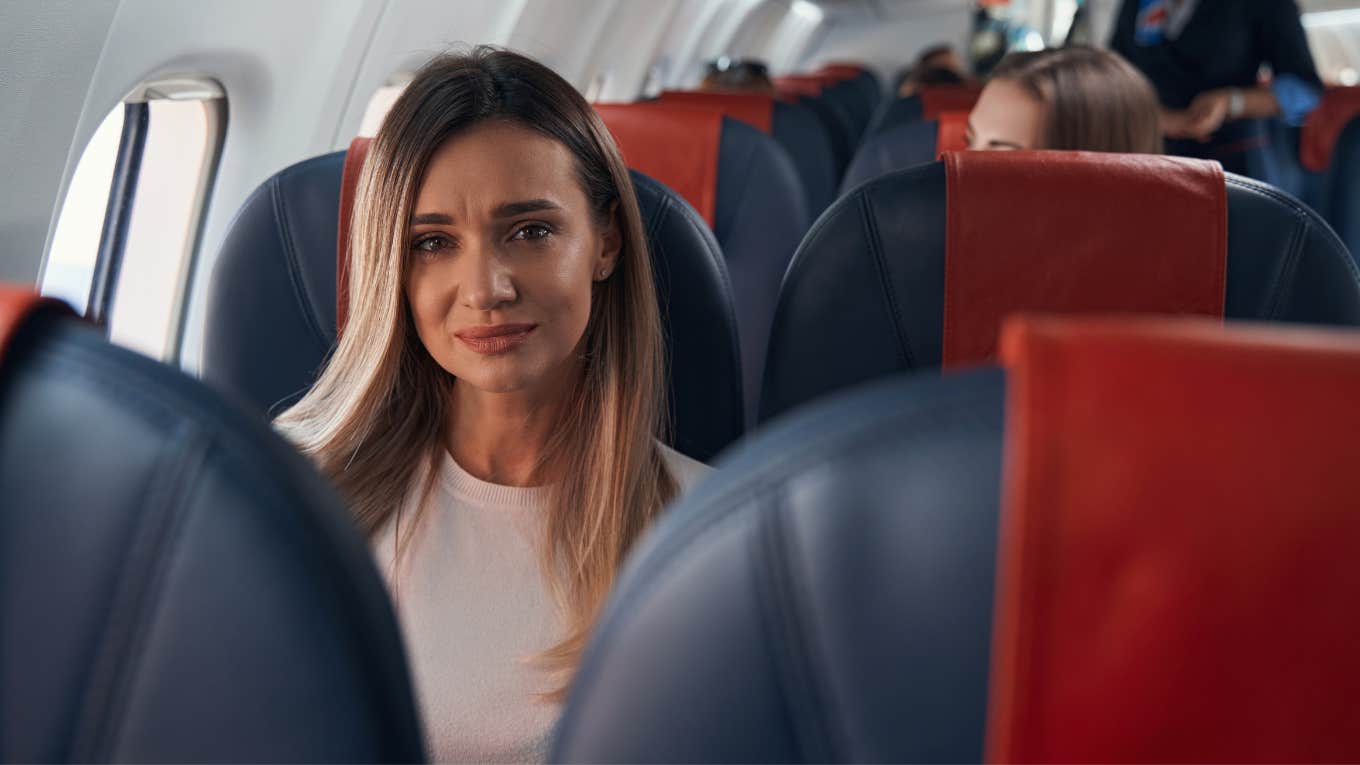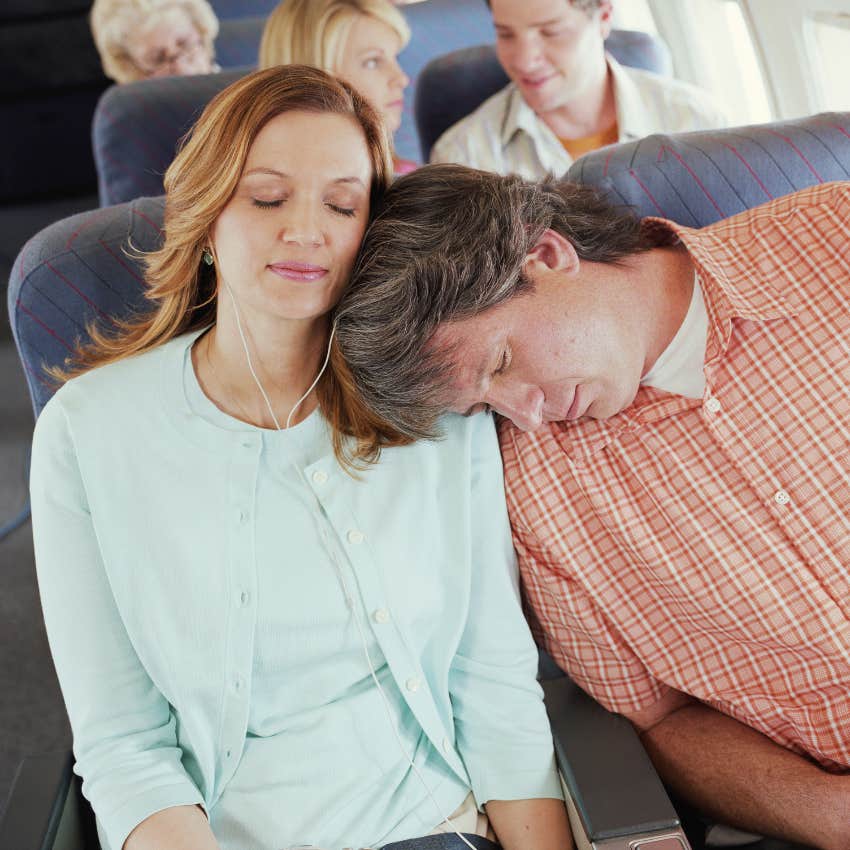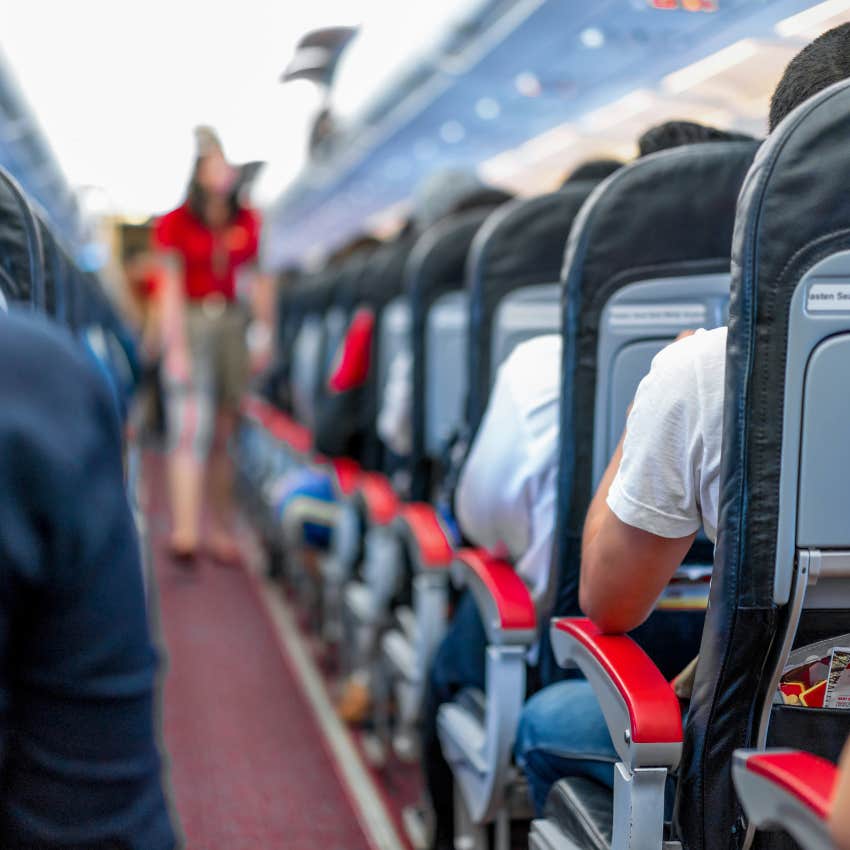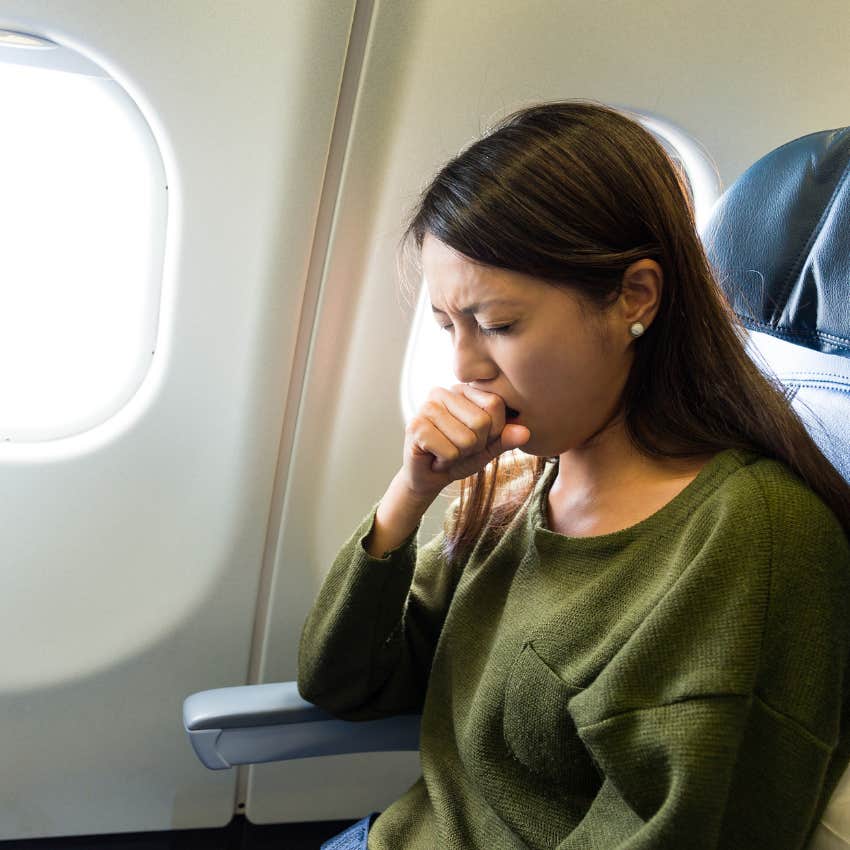This Highly Coveted Seat On The Plane Is Actually The Worst, Says A Health Expert
Sure the legroom is nice, but at what cost?
 yacobchuk from Getty Images | Canva Pro
yacobchuk from Getty Images | Canva Pro If you're like most travelers, you have a favorite type of airplane seat, and you'll do whatever it takes to make sure you get a window or aisle. (Unless you're a sociopath who actually likes middle seats).
People will argue till the cows come home about whether aisle or window seats are the best, but when it comes to all the germs on those planes, there's one seat that is teeming with microbes.
A health expert says aisle seats are the worst for germ exposure on planes.
If you're anything like this writer, you'd rather fly in the cargo hold than sit in a middle or window seat. The extra legroom alone is a godsend, as is being able to stand up, stretch, get in the overhead bin, and go to the bathroom without having to make a whole production of it. Aisle seat forever!
But Simon Greenberg, the CEO of AI healthcare startup Medidex, says aisle seats are actually the worst possible choice if your list of flying concerns includes being exposed to germs on board.
 Digital Vision from Photo Images | Canva Pro
Digital Vision from Photo Images | Canva Pro
We all know that boarding a plane, especially during cold and flu season, is basically walking into a tin can full of everyone else's germs. This was always true, but it's even more true since that fun little pandemic we had added a whole new ailment to the mix. And it turns out the aisle seat is the germiest area possible.
Aisle seats have the most contact with other passengers.
This is somewhat of a paradox: The aisle seat is certainly not the location where you're squashed up against other people like the center seat is. But it IS the location in a plane where you have the most human contact overall.
"From a health perspective, you're positioning yourself in the highest-risk zone on the aircraft,” explains Greenberg. “Every passenger walking past becomes a potential source of exposure." All those trips to the bathroom or to chase a toddler down the aisle are extra helpings from the airplane germ buffet.
Greenberg notes that it's not just people walking by; other passengers also often grab your headrest to steady themselves, leaving germs behind right next to your face, where they get easy access.
 Surachet Shotivaranon | Canva Pro
Surachet Shotivaranon | Canva Pro
"Think about the flight boarding process alone," Greenberg says. “Hundreds of passengers file past aisle seats… You're essentially coming into contact with every person on that plane before takeoff." You're also getting brushed against over and over by flight attendants serving drinks, too.
Aisle seats are also located directly in the flow of the plane's air.
Another benefit of aisle seats is that they have better air flow. Those window seats are always too cold or too hot! But this, too, comes at a cost, because that air flow is because the recycled air on the plane is wafting down the aisle the whole flight.
Though airplane air is heavily filtered, the constant activity creates air currents down the aisle and around the aisle seats. "When someone coughs or sneezes, those droplets don't just disappear,” Greenberg explains. "The movement [in the aisle] creates air currents that can carry particles directly to aisle passengers.”
And if your aisle seat is near the bathroom, it's a double whammy: The constant opening and shutting of the bathroom door wafts germs around too, whether it's the aforementioned respiratory droplets or whatever norovirus nightmare might be going on in the bathroom in question.
 Leung Cho Pan | Canva Pro
Leung Cho Pan | Canva Pro
“Window seat passengers have significantly less contact with other travelers,” Greenberg says. “You control your environment better and reduce exposure to respiratory droplets from passing passengers.” Even the middle seat is better in this regard, torturous though it is in all others.
No need to become a germaphobe, but Greenberg suggests bringing sanitizing wipes and wearing a mask if you're worried about catching something while traveling. Staying hydrated and avoiding touching your face, nose, eyes, and mouth are good practices too.
"People often don't realize that their immune system is already compromised during travel due to stress, dehydration, and disrupted sleep patterns. This makes you more susceptible to infections you might normally fight off," Greenberg says. "A little preparation can mean the difference between enjoying your destination and spending it recovering from illness."
John Sundholm is a writer, editor, and video personality with 20 years of experience in media and entertainment. He covers culture, mental health, and human interest topics.

